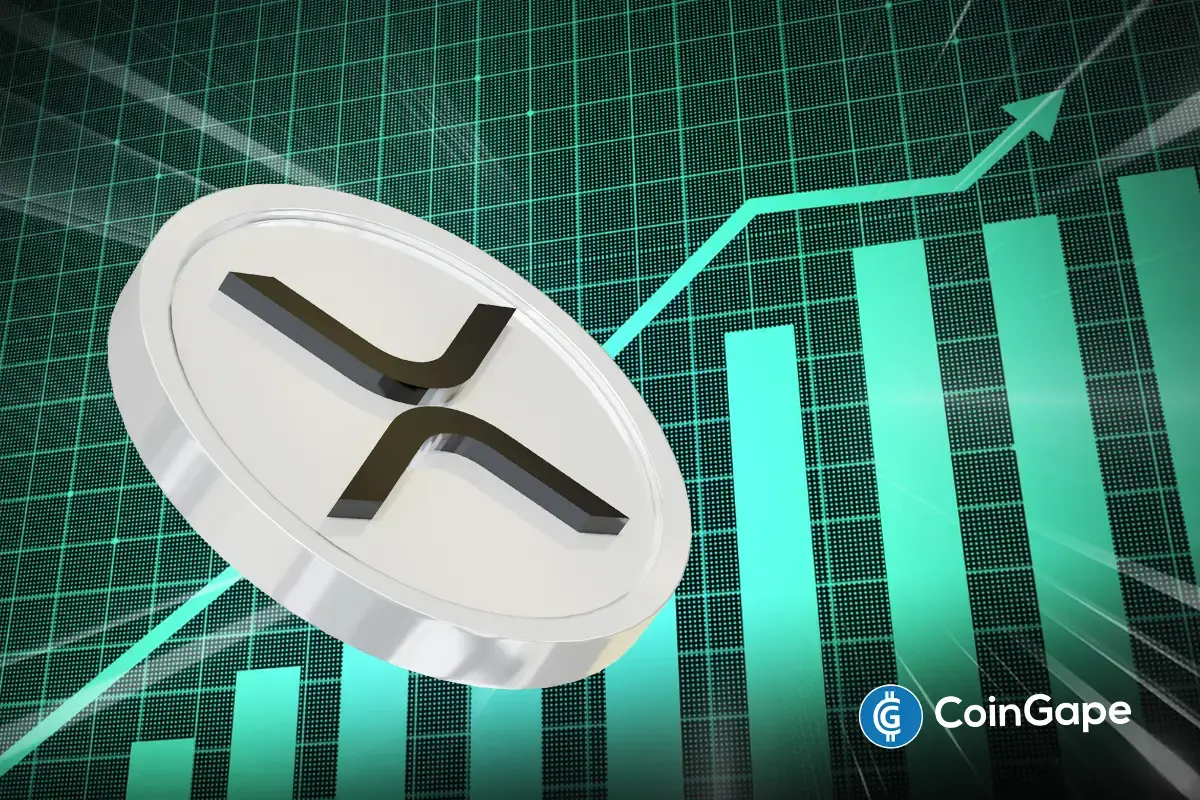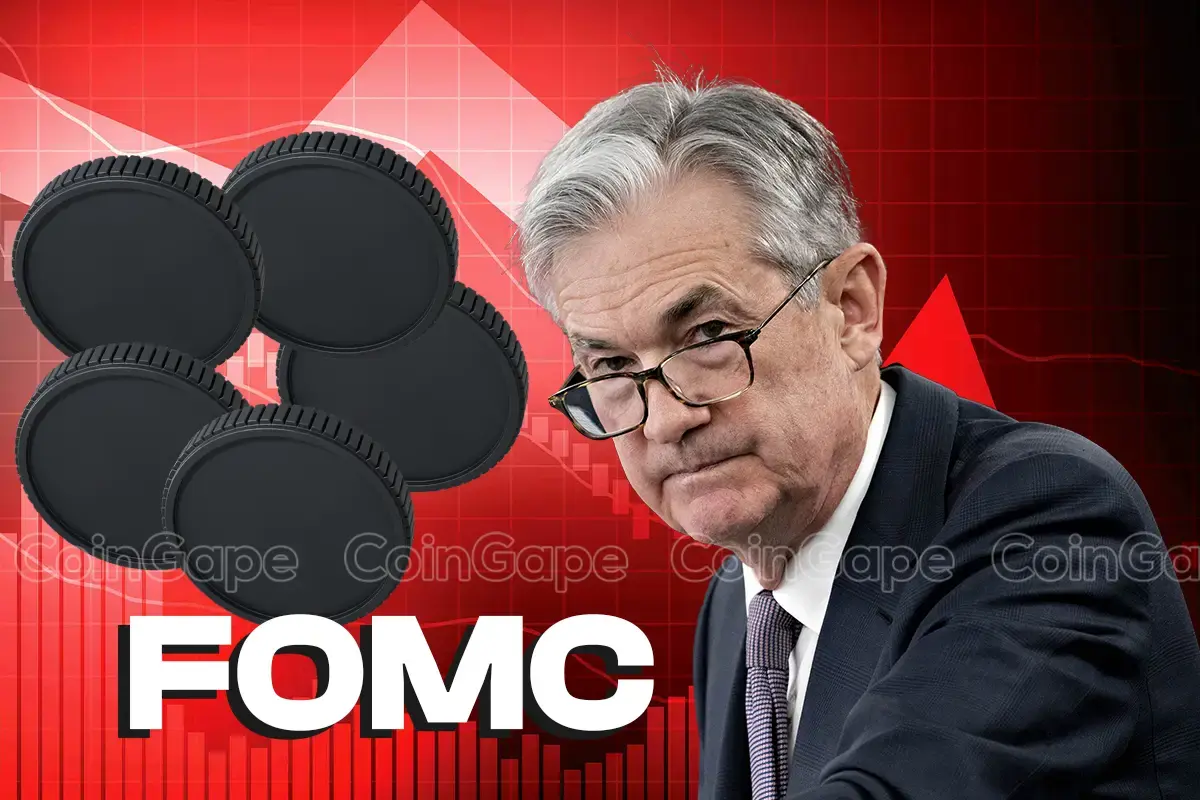Regulation
Chainalysis Bags Dismissal In $80M Employment Contract Breach Lawsuit

A lawsuit seeking $80 million in damages against the blockchain analysis firm Chainalysis has been dismissed by Manhattan Supreme Court Justice Joel Cohen. The plaintiff, Blake Ratliff, who is a former employee of Chainalysis, claimed that the firm breached an alleged oral agreement to modify the terms of his stock options. However, the court sided with Chainalysis, represented by Skadden, Arps, Slate, Meagher & Flom.
Judge Rules In Favor Of Chainalysis
The Supreme Court judge granted the motion to dismiss due to the failure to state a viable claim and the lawsuit being time-barred. Chainalysis argued that Ratliff’s breach-of-contract claims were filed too late as they were initiated six years after his employment with the company ended. Moreover, Ratliff worked at Chainalysis for less than a year with a focus on Bitcoin tracing.
According to Chainalysis, any alleged oral agreement was unenforceable under New York’s statute of frauds, which requires certain agreements to be in writing. Furthermore, the blockchain company asserted that Ratliff resided in Florida during his employment. The state has a four-year statute of limitations for oral contracts, rather than Tennessee’s six-year period.
However, Ratliff defended himself and claimed to have resided in Tennessee, thereby extending the statute of limitations. Despite this, the court agreed with Chainalysis’s position on the residency issue. Additionally, the court found that Ratliff’s employment agreement explicitly prohibited oral modifications. In addition, it required twelve months of continuous employment before vesting of stock options.
Moreover, Chainalysis highlighted the clear terms of the employment agreement. It stated that Ratliff would be granted an option to purchase 19,200 shares of the company’s common stock with vesting conditions tied to continuous service. The agreement specified that 25% of the option shares would vest after 12 months.
Whilst, the remaining shares vesting monthly over the next 36 months. However, Ratliff’s employment was terminated in 2017, less than a year into his tenure, meaning he did not meet the vesting criteria.
Also Read: Elon Musk Drops the Lawsuit on OpenAI For Breach of Mission, What’s Next?
Ratliff Plans To Appeal
Ratliff argued that Chainalysis co-founders Michael Gronager and Jonathan Levin assured him verbally that his stock options would be guaranteed. They allegedly also ensured that he would continue to advance within the company. He claimed these assurances constituted an amendment to the original employment agreement, effectively modifying the terms of his stock options.
Moreover, Ratliff asserted that he gave up on a salary increase and declined other lucrative job offers based on these promises. In response to the motion to dismiss, Ratliff contended that there were factual issues that required discovery and depositions.
Also, he argued that Chainalysis’ interpretation of the employment agreement was completely flawed and one-sided. Hence, he believes the blockchain firm ignored the substance of his allegations. Ratliff maintained that the statute of frauds argument did not apply because the company could have awarded the stock options within a year.
Despite Ratliff’s arguments, Justice Cohen’s decision to dismiss the $80 million lawsuit reflected the strength of Chainalysis’ position. Ratliff’s attorney, Benjamin Joelson of Akerman, expressed disagreement with the decision and indicated plans to appeal.
He stated, “We believe that Chainalysis wrongfully withheld compensation from Mr. Ratliff and we intend to continue to pursue Mr. Ratliff’s rights,” according to a report by the New York Law Journal. However, the dismissal still marks a significant legal victory for Chainalysis.
Also Read: Bitcoin Price Forecast: Why BTC Crumbles Before FOMC Meeting
The presented content may include the personal opinion of the author and is subject to market condition. Do your market research before investing in cryptocurrencies. The author or the publication does not hold any responsibility for your personal financial loss.
Regulation
Kraken Obtains Restricted Dealer Registration in Canada

Cryptocurrency exchange Kraken has obtained a Restricted Dealer registration in Canada. The registration comes after completing a pre-registration undertaking (PRU) process with Canadian authorities.
The exchange has also announced the appointment of Cynthia Del Pozo as its new General Manager for North America. Del Pozo will oversee Kraken’s growth initiatives in Canada.
Kraken Completes PRU Process In Canada
Kraken’s Restricted Dealer registration marks the completion of a thorough pre-registration undertaking (PRU) process with Canadian regulators. The registration places Kraken under the supervision of the Ontario Securities Commission (OSC). This oversight ensures users have access to secure crypto products within a properly regulated local ecosystem.
According to the Canadian Securities Administrators (CSA), the Restricted Dealer registration is one of eight firm registration types in Canada. This particular classification is used for firms that “do not quite fit under any other category.” It also comes with specific requirements and conditions set by securities regulators.
Kraken’s regulatory achievement comes during a period of change in the Canadian crypto sector. Just months earlier, competitor Gemini exchange announced its departure from the Canadian exchange market by the end of 2024. This was a move that surprised many and raised questions about cryptocurrency regulation clarity in the country.
Kraken Introduces New Canadian GM
Del Pozo has joined Kraken to lead its Canadian operations as the new General Manager for North America. She has nearly 15 years of experience in corporate development, operations, and fintech consulting. Del Pozo will help to guide Kraken’s expansion across Canada during this important phase of crypto’s development in the region.
“Canada is at a turning point for crypto adoption, with a growing number of investors and institutions recognizing digital assets as a vital part of the financial future. I’m thrilled to join Kraken’s mission at this critical moment, and to lead our expansion efforts, ensuring we continue to serve our clients long-term with innovative and compliant products,” said Del Pozo.
In her role, Del Pozo will focus on strengthening Kraken’s regulatory relationships and also scaling the company’s presence throughout North America.
Del Pozo also commented on the registration achievement: “This Restricted Dealer registration is testament to the high bar Kraken has always set for consumer protection, client service, and robust security. We’re excited to continue expanding our world-class investment platform and to deliver innovative products that provide real-world utility to Canadians.”
The Exchange’s Continued Growth In Canada
Over the past two years, the cryptocurrency exchange has shown steady expansion in Canada while working through the PRU process with regulators. During this period, the exchange has doubled its team size and monthly active users.
According to the official blog post figures, the firm now has more than $2 billion CAD in total client assets under custody. Kraken has also increased support for some of the most popular cryptocurrencies. It provides several CAD spot trading pairs that enable Canadians to trade crypto without paying expensive foreign exchange fees.
According to Innovative Research Group’s 2024 Investor Survey, 30% of Canadian investors currently own or have owned cryptocurrencies. Likewise, a KPMG Canada survey discovered that 30% of Canadian institutional investors now have exposure to cryptocurrencies, which means widespread adoption across investor types.
Disclaimer: The presented content may include the personal opinion of the author and is subject to market condition. Do your market research before investing in cryptocurrencies. The author or the publication does not hold any responsibility for your personal financial loss.
Regulation
USDC Issuer Circle Set To File IPO In April, Here’s All

USDC issuer Circle is reportedly set to file its initial public offering (IPO) in April as part of the firm’s plans to finally go public. The stablecoin issuer is allegedly already working with top financial institutions to achieve this move.
Circle To File IPO In Late April
According to a Fortune report, Circle is looking to file its IPO in late April, although the listing period remains uncertain. The report noted that when a company files to go public, its shares usually begin trading four weeks later, indicating that the listing could occur in May. However, there is also a scenario where the IPO process could drag on for months.
The stablecoin issuer is reportedly working with investment banks JPMorgan Chase and Citi to achieve its long-anticipated IPO. The firm had previously tried to go public in 2021 under a SPAC arrangement with a shell company.
The US SEC failed to sign off on this arrangement back then, and the company eventually scrapped these IPO plans by the end of 2022 when the crypto exchange FTX collapsed and the broader crypto market experienced a downturn.
Revelation about Circle’s IPO plans comes just days after the stablecoin issuer partnered with NYSE’s parent company to explore USDC’s use in traditional finance (TradFi). Meanwhile, the USDC stablecoin recently launched in Japan following approval from the country’s regulator. Notably, USDC is the first and only global dollar stablecoin approved under Japan’s stablecoin framework.
An Easier Path Now For The Stablecoin Issuer
Circle will likely face less resistance for its IPO plans under the current SEC administration. Under acting Chair Mark Uyeda, the Commission has shown its willingness to work hand in hand with crypto firms, which was missing under Gary Gensler’s administration.
US SEC Chair nominee Paul Atkins has also shown his willingness to change the approach that Gensler’s administration adopted towards crypto firms. During his nomination hearing, the SEC Chair nominee promised to prioritize providing regulatory clarity for the industry.
Circle’s IPO listing would be the biggest since the top crypto exchange Coinbase went public in 2021. Interestingly, Coinbase owns an equity stake in the crypto firm.
The firm’s USDC is currently the second-largest stablecoin by market cap, only behind Tether’s USDT. The stablecoin industry is heating up as more financial institutions look to develop their own stablecoin.
Donald Trump’s World Liberty Financial recently revealed plans to launch its USD1 stablecoin, while asset manager Fidelity is also considering doing so.
Disclaimer: The presented content may include the personal opinion of the author and is subject to market condition. Do your market research before investing in cryptocurrencies. The author or the publication does not hold any responsibility for your personal financial loss.
Regulation
Japan Set To Classify Cryptocurrencies As Financial Products, Here’s All

Cryptocurrency investors in Japan are bracing for impact following a plan to reclassify digital assets as financial products. While the plan has elicited excitement from cryptocurrency enthusiasts in the Far East, the ambitious plan will have to scale several legislative hurdles.
Japan Targets Reclassification Of Cryptocurrencies As Financial Products
According to a report by Nikkei, Japan’s Financial Services Agency (FSA) is inching toward classifying cryptocurrencies as financial products. Per the report, the FSA intends to achieve the reclassification via an amendment to the Financial Instruments and Exchange Act.
Currently, digital assets in Japan are considered crypto assets conferred with property rights and seen as payment means. Under the FSA’s plans, cryptocurrencies in Japan will be treated as financial products in the same manner as traditional financial products.
The FSA says it will adopt a slow and steady approach toward the reclassification, carrying out “a private expert study group” to test the waters. If everything goes according to plan, the FSA will submit the amended bill to Parliament in early 2026.
The classification of cryptocurrencies as financial products will have far-reaching consequences for the local ecosystem. Experts say treating cryptocurrencies as financial products will bring Japan closer to a crypto ETF launch amid a changing regulatory landscape.
Furthermore, the move may lower current cryptocurrency taxation for local investors since existing capital market rules will apply to the asset class.
A Fresh Bill For Crypto Insider Trading Is Underway
Apart from the reclassification, the FSA disclosed plans for new legislation against insider trading. The move flows treating cryptocurrencies as financial products and will strengthen existing investor protection rules.
“It is a direction to establish a new insider trading regulation that prohibits trading based on unpublished internal information,” said the FSA. “We will develop laws to prevent unfair transactions.”
However, Japan’s cryptocurrency scene is heating up to a boil, driven by local and international players. Last week, stablecoin issuer Circle secured approval from the FSA for USDC with top exchanges set to list the stablecoin.
Japan’s Metaplanet has tapped Eric Trump to join its Strategic Board of Advisors as it continues to load up Bitcoin.
Disclaimer: The presented content may include the personal opinion of the author and is subject to market condition. Do your market research before investing in cryptocurrencies. The author or the publication does not hold any responsibility for your personal financial loss.
-

 Altcoin23 hours ago
Altcoin23 hours agoXRP Price to $27? Expert Predicts Exact Timeline for the Next Massive Surge
-

 Market21 hours ago
Market21 hours agoHow Did UPCX Lose $70 Million in a UPC Hack?
-

 Market23 hours ago
Market23 hours agoBinance Megadrop Launches KernelDAO
-

 Market22 hours ago
Market22 hours agoEthereum Struggles to Break Out as Bear Trend Fades
-

 Market20 hours ago
Market20 hours agoHill Rejects Interest-Bearing Stablecoins Despite Armstrong’s Wish
-

 Bitcoin17 hours ago
Bitcoin17 hours agoBitcoin Could Serve as Inflation Hedge or Tech Stock, Say Experts
-

 Market17 hours ago
Market17 hours agoSUI Price Stalls After Major $147 Million Token Unlock
-

 Market16 hours ago
Market16 hours agoBeInCrypto US Morning Briefing: Standard Chartered and Bitcoin























✓ Share: